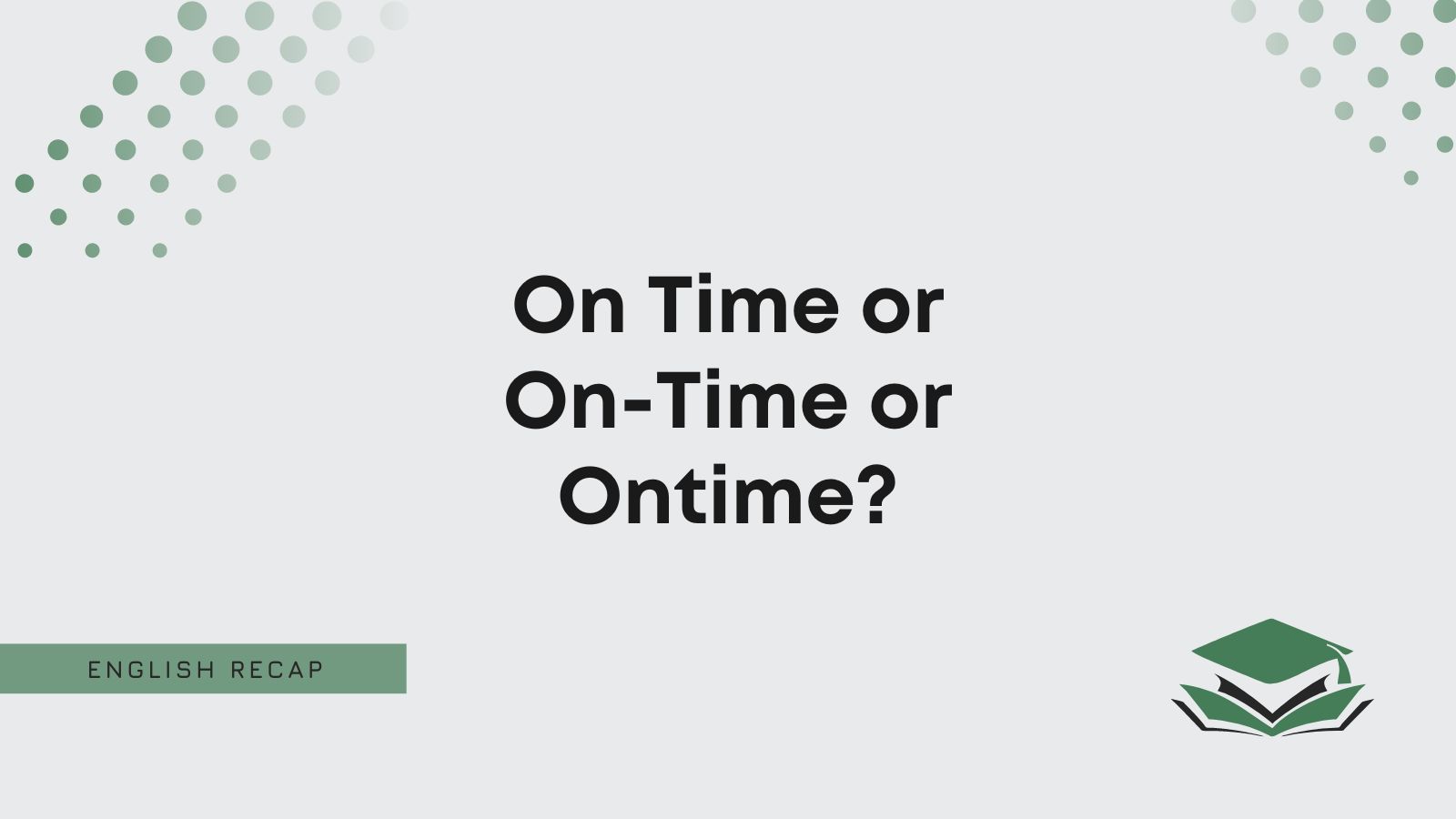The hyphenated term on-time is a compound adjective that you use to describe nouns. E.g., “There are no on-time arrivals for the next hour.” Furthermore, when you write on time as two words without a hyphen, it is a phrase. E.g., “She always arrives on time.”
There are two ways that you can write the term on time.
The first is without the hyphen, in which case on time will appear after the subject and verb.
As you can see in this sentence, on time appears after the subject you and after the verb come. Therefore, we do not need a hyphen.
- You should try to come on time because we are starting at 6 pm on the dot.
The second way to write on-time is with the hyphen, in which case it is a compound adjective.
Therefore, in the following example, on-time appears before the noun delivery and describes the nature of the delivery.
- We expect on-time delivery. If not, we will change the logistics provider.
Furthermore, if you are writing in AP Style or following the Chicago Manual of Style, you should follow the grammar rules outlined above.
In addition, ontime as one word is incorrect. Instead, you must write it as two separate words or with a hyphen.
Using terms such as on time correctly can be tricky. That’s why you should read the rest of the page so you can make sure you understand it correctly. Thereby, you can avoid making mistakes when using on time in your writing.
On Time
The term on time is a phrase that you can use to describe something happening punctually. You do not need a hyphen when you use on time and it is not describing a noun.
As these sentences show, there is no noun immediately after on time, so we do not need a hyphen.
- We need to arrive on time when we go to the airport tomorrow.
- We got to the station just on time for the train.
- The project was completed on time, much to the relief of the team.
- She always makes sure to submit her assignments on time.
- The bus arrived on time, despite the heavy traffic.
- The meeting started on time, which is unusual for this group.
The above examples are the most common way people use the term on time.
Google Ngram reveals that on time has always been much more common than on-time with a hyphen in the UK and in the US.
However, this does certainly not mean that on-time is incorrect. It is just used in another context, which we will explain below.
On-Time
The term on-time with a hyphen is a compound word that you can use to describe something that will happen or arrive punctually.
In this format, the word on-time will always come directly before a noun, and it will describe that the noun does something on-time.
Review these examples to see how to use on-time in a sentence:
- As long as you make on-time payments, we will not charge you interest.
- On-time students will have the preference of choosing a seat on the bus.
- The on-time delivery of the package was crucial for the project.
- His on-time arrival made a good impression at the job interview.
- The airline is known for its on-time departures.
- We appreciate your on-time submissions for the monthly reports.
Furthermore, although it is not necessary to do so, some people use the hyphenated version for the phrase as well as for the adjective.
However, it is not common, and you should not do this if you are writing in AP Style or the Chicago Manual of Style.
Instead, you should only use on-time when the word is modifying a noun.
Ontime
The term ontime as one word with no hyphen is not a correct spelling, and you should avoid using it.
However, you can write the term in two alternative ways.
- On time – Phrase
- On-time – Adjective
Here are some examples of how the different forms appear:
- The game did not start on time because of the storm.
- We are expecting on-time departures for the rest of the day.
In the first example, the term on time is not modifying anything, so there is no hyphen. However, in the second example, on-time describes the departures, so we have a hyphen.
Here are some more example sentences of how to use on time and on-time correctly:
- She always finishes her work on time, never missing a deadline.
- We appreciate on-time payments to avoid any late fees.
- The conference ran on time, despite a packed agenda.
- The on-time performance of this airline is impressive.
That’s all you should know about using on time and on-time. Remember that both words are correct – only ontime is incorrect to use.

